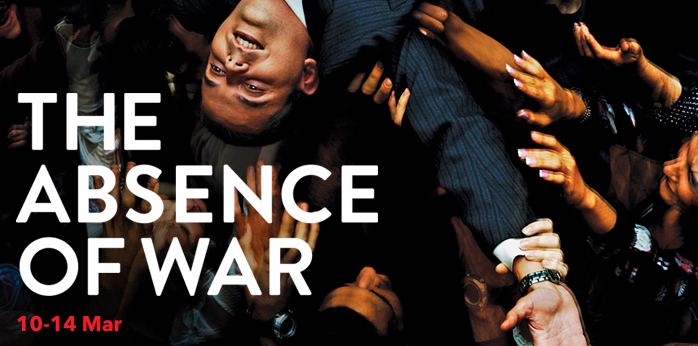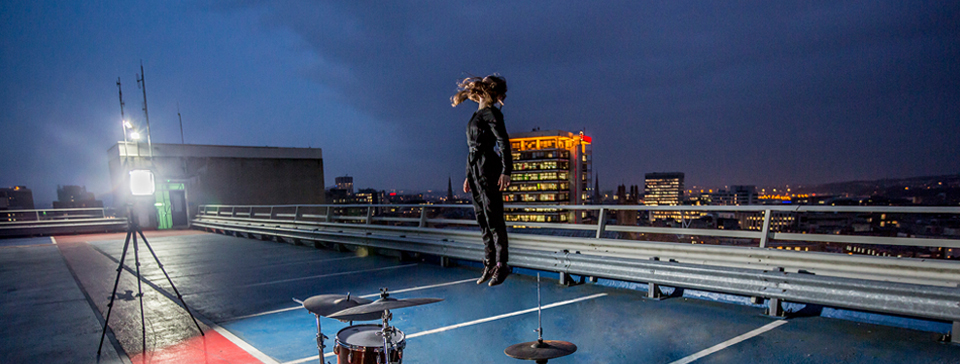The Absence of War at Bristol Old Vic
Last night, I went to see The Bristol Old Vic to see ‘Absence of War’, a play by David Hare, directed by Jeremy Herrin and Presented by Headlong, Rose Theatre Kingston and Sheffield Theatres. The play scrutinises the UK political system from the perspective of those inside the Labour Party. It is a reflection on leadership, and a character study of a charismatic yet essentially flawed man and the sacrifices he must make as he leads his party into the election battleground. Here are men with no real war to fight, but who must believe that the political war they wage is equally as important and purposeful. But, aren’t all wars full of folly and futility?
With the imminent General Election that looks likely to be the most unpredictable in recent times and where neither of the two usual suspects are confident of outright victory, the revival of ‘Absence of War’ seems particularly timely. Putting the somewhat 90’s style power dressing of one of the female characters aside, the play feels like it could have been written about the current political climate that we find ourselves in today, yet I was really surprised to learn that the play is actually 22 years old. Maybe it just highlights that, depressingly, nothing really changes in the games they play in politics.
The play is inspired by real events of an election campaign, after Hare spent time with the main players of the Labour Party during the run up to the 1992 General Election. This was the first election I really remember, although I was not quite old enough to vote in it. My Dad was a staunch Labour socialist, so he influenced my own political leanings at the time. I remember the feeling that Neil Kinnock as the leader of that time might just do it. I remember that famous headline in The Sun newspaper on the day of the election, the one about the last one out of the country turning the lights off. This year was also the first time I remember being outraged by journalistic bias. I remember the dismay I felt when the Tories got in yet again, and Labour remained the political party who appeared unelectable. Things have changed since 1992. The Labour party have won three general elections since the play was written, so they are no longer the seemingly unelectable party they appeared to be at the time. Possibly that is because they have become more like the Tories than ever before, but I promised myself this review would not turn into a political rant, so I am stepping away from my own personal feelings! What hasn’t changed is the notion of how carefully controlled and crafted image is within politics. Here in Labour leader George Jones is a man who in private in likeable, strong and charismatic, yet he cannot seem to get this across to the voters. But his own personal battle is this; if he is allowed to remain true to himself, will the voters and the respect he wins be worth the damage he may do to the party? What about the united front he has worked hard for the party to present? What IS more important to George Jones, his own integrity, or doing what is best for the party? And, for him, how closely are these two things tied anyway?
The cast of ‘Absence of War’ were all strong, but credit must be given to Trevor Fox who was drafted in at very short notice to play George Jones after Reece Dinsdale was unavailable due to illness. We were told he would be holding a script throughout the performance due to his limited rehearsal time, and I wondered how this would impact on my enjoyment of the show. There was no need to worry, Fox managed to make this into a prop, and he hardly appeared to even glance at it in the first half. His performance was strong and full of gravitas. Had he not managed to fill the shoes of George Jones fully the play would have been lost. It is a credit to his acting that he not only filled the shoes, he made me trust him completely in the role.
The staging of this show was perfect. From the very first second the backdrop was visually striking, and the movement and energy of the scene changes kept the pace of the play fast and engaging. The lack of mobile phones was striking, and the use of Ceefax on suspended monitors placed it in the 90’s too. (If you need to ask what Ceefax is, then you really weren’t there!) Clever use of camera, having the actors on TV screens and large-scale monitors as well as on the stage gave the play of a sense of immediacy, like we were watching the events of the election campaign as they happened.
I was pleasantly surprised at the humour to be found within this play, which acted as light relief to the seriousness of the content. Many might feel that political theatre is not for them, but I would urge them to take a risk with this show, as it is interesting and thought provoking. In a few months time we will all watch the real performance unfold before our eyes. I think ‘Absence of War’ is infinitely more entertaining than that circus will be!
Absence of War is on at Bristol Old Vic until the 14th March.
Reviewed by Karen Blake



